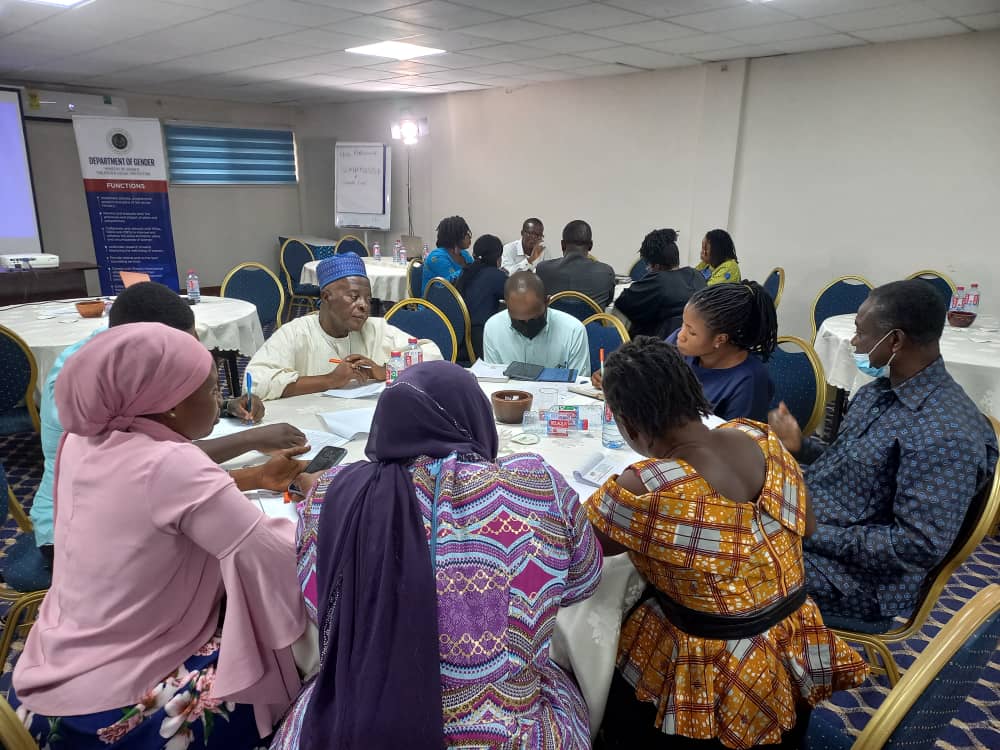By Priscilla Oye Ofori
Accra, Sept. 29, GNA – Mrs Zuweira Lariba Abudu, Minster Designate, Gender, Children and Social Protection, says the achievement of gender equality is the attainment of human rights and a prerequisite for sustainable development.
“Gender Equality and Women Empowerment remain powerful strategies for reducing poverty levels, social injustices among women, improving health standards and enhancing the efficiency of public and private sector investments and domestic finance globally,” she said.
Mrs Abudu made this remarks in a speech read on her behalf by Mr Mawutor Ablorh, Director, Ghana Productive Safety Net Project, at a validation meeting for the National Framework on engaging Traditional Authorities and Faith- Based Leaders to address gender inequalities and harmful cultural practices.
The Framework seeks to guide them in the process of addressing gender inequalities and harmful cultural practices as well as promote gender equality and the rights of women, girls and persons living with disabilities in communities.
Mrs Zuweira said despite national and international legislations and commitments, such as the African Women’s Decade (AWD) 2010, and the Ghanaian Constitution and laws prohibiting discrimination and dehumanising practices, acts of violence, abuse and gender discrimination continued to persist in Ghana.
She noted that negative cultural practices such as widowhood rites, trokosi, Female Genital Mutilation, child marriage, witchcraft accusations and trial by ordeal among others, hindered attainment of gender equality in the country.
The Minister Designate said the Ministry found it vital to engage all stakeholders, including Traditional Authorities, Faith-Based leaders, Civil Society Organizations (CSOs) and other state and non-state actors for the collective gain of gender equality and equity at all levels in the country.
“This is the way to go as we approach the time set for ourselves globally to achieve the Sustainable Development Goals in 2030,” she stated.
Mrs Abudu said engagements in previous years with some traditional authorities as “He for She” ambassadors, now advocates for the elimination of all forms of violence against women and girls, showed that they were not guided by any formal structure in dealing with issues on Gender-Based Violence and harmful practices.
Dr Afisah Zakariah, Chief Director, Gender Ministry, urged stakeholders to own and utilise the document to contribute to a successful implementation in the long term for sustainable development.
She said the Ministry was mandated to work towards ending gender inequalities, all negative cultural practices and stigmatisation, whilst enhancing the quality of life of citizens and protecting the vulnerable in society against human rights abuses.
Therefore, Dr Zakariah said, the preparation of the framework started with soliciting views through consultative meetings of stakeholders in the northern and southern zones of the county and that it was time to validate it.

The Chief Director commended the United Nations Population Fund (UNFPA) for its continuous support to the Ministry and the Consultant for the efforts put in the project.
Mr Barnabas Yisa, Country Representative, UNFPA, called on stakeholders to systematically intensify efforts to address risks and protective factors while investing more time and resources in adopted approaches.
That, he said, would help promote gender equality, and prevent and respond to violence against young people.
“Much has been done, but much more is needed to ensure that Ghana is on track toward successfully eliminating all forms of violence against all vulnerable groups in the public and private spheres and we count on your continuous support.”
GNA